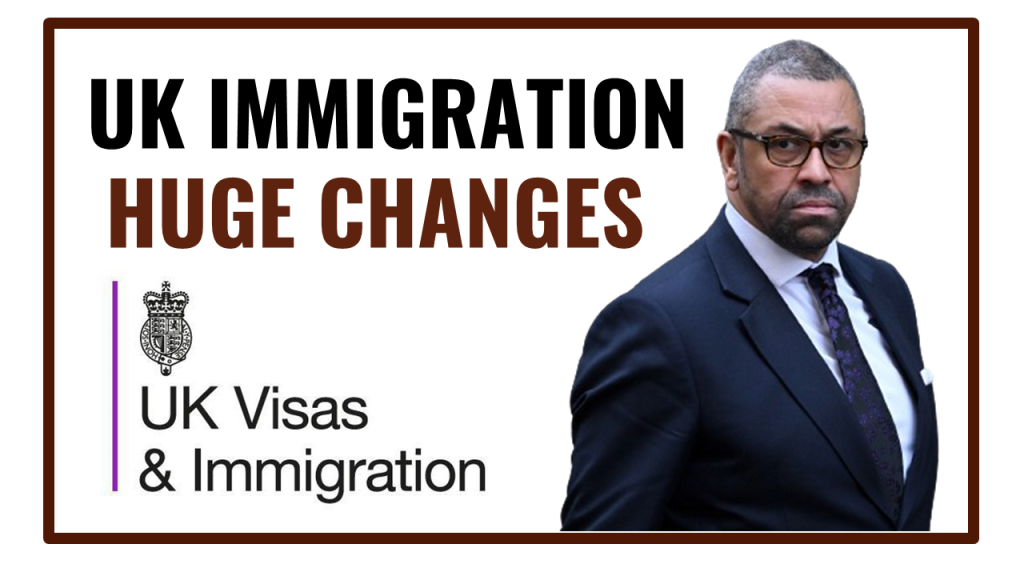
On the 4th of December 2023, the UK Home Secretary, James Cleverly announced some serious changes to UK immigration policy. Following a report that net migration hit a record of 745,000 for 2022, it’s no surprise that the UK government is taking action to cut migration. Unfortunately, some of these changes do not bode well for a lot of people that might be thinking about relocating to the UK or switching from one visa route to another while in the UK.
In this post, we cover the 5 main changes made, who they affect, and some of the questions that still need to be answered.
Skilled worker visa salary threshold increased to £38,700
This is an increase from the previous value of £26,200 per annum. Since this change will take effect from Spring 2024, skilled workers looking to move to the UK or remain in the UK to work will be desperate to secure sponsorship before the new threshold takes effect.
But what happens to those that are already on skilled worker visas and will be looking to renew their skilled worker visa after the changes take effect? Will they also be required to meet this threshold? At the moment, this is still unclear.
Note: Health and care workers are not required to meet this threshold of £38,700.
Shortage Occupation List changes
Before the changes announced on 4th December, employers looking to hire for jobs on the shortage occupation list were allowed to offer salaries of 20% less than the minimum salary that would typically be the going rate for those roles. When the new changes take effect, the option to offer 20% less than the standard salary for such a role will be scrapped. The current shortage occupation list can be found here.
Dependents no longer allowed when applying for Health and Care worker visa
This is a big one. It underlines the UK government’s determination to cut down migration as well as prevent what it has identified as abuse of the Health and Care worker visa. For some context, it was reported by Sky news in August 2023 that some foreign migrants were being left destitute in the UK after being sponsored for Health and Care worker visas, only to arrive in the UK to find that those jobs were not available. Many of these migrants would have migrated to the UK with their dependents. Since the jobs they were sponsored for do not exist, how do they support themselves and their dependents after relocating to the UK?
One of the questions that will need to be answered as part of this change is – what happens to a health or care worker who has previously come into the UK with their dependents, but need to renew their visa after the new changes take effect? Could their dependents be refused visa extensions as a result of the change?
Family visas income threshold
Before the recent announcement, a British citizen could bring in a dependent (e.g their children or spouse) on a family visa as long as they earned up to £18,600 a year. With the new changes, the British citizen will have to earn up to £38,700 in order for their dependents to be eligible to apply to join them on a family visa.
Again, there is the question of those on the 5-year route that may be renewing their family visas. Will they be expected to meet the new salary requirement?
Student visas changes
No definitive changes were announced to the student visas as yet. However, the Home Secretary said they will ask the Migration Advisory Committee to review the current rules of the graduate visa. Remember that a few months ago, changes to the student visa were announced which will prevent those applying for student visas from bringing their dependents to the UK, unless the applicant is coming into the UK for a PhD or a research-based higher degree. More of that can be found here.
The drastic nature of some of these changes as well as how quickly they will come into effect have taken many by surprise.
Are you affected by any of these new changes? Let us know in the comments?
